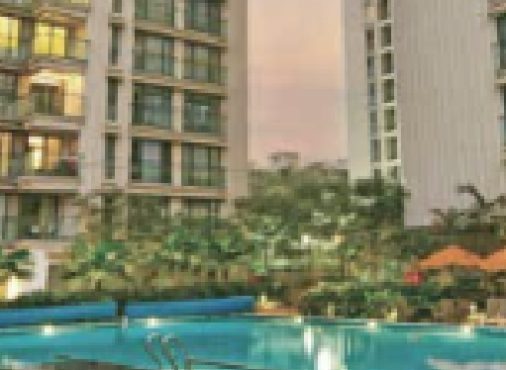With Indian cities growing busier and noisier, premium home buyers are increasingly searching for coastal properties that offer a respite from the chaos and enhance the quality of life. NRIs are no exception to this trend, with the high investment potential and rental yields of these properties further contributing to their interest.
But to understand the significance of living in coastal properties, it’s essential to take a closer look at the various benefits they offer. In this regard, our blog post takes potential home buyers through all that they need to know.
High-Value Appreciation Potential
Limited Coastal Real Estate Supply
Properties located near the seaside are popular for their high resale value. Even during downturns in the market, the price of such properties tends to rise quickly just after the market regains stability.
The exclusivity of the limited natural beachfront spaces helps retain the value of properties in these regions and attracts buyers consistently. Thus, living in a luxury property near a beach not only provides a lifestyle full of comfort but also helps build a secure future.
For instance, property rates in Worli Sea Face, a leading coastal region in Mumbai, rose by a record 52.4% over the last 5 years, with the average price per square foot of properties priced at around Rs. 80,000 currently.
Upcoming Infrastructure Projects
- Coastal communities witness a high level of infrastructural development, which includes airports, major coastal highways, retail malls, hospitals, and the formulation of policies that are tourism-friendly.
- The presence of such amenities in coastal regions helps enhance the allure of life near the beachfront, in turn elevating the desirability of the place to potential tenants and buyers.
- For instance, for Versova in Mumbai, the upcoming Metro Line 2A and the Coastal Road Project that’s underway are likely to enhance the accessibility of the region, decreasing travel times and increasing property values.
- Notably, the Coastal Road Project connects South Mumbai to Versova, while Metro Line 2A stretches from Dahisar to Versova.
Luxury Lifestyle & Wellness Benefits
Serene Views & Peaceful Living
- Homebuyers seeking properties in coastal regions are undoubtedly attracted to the panoramic views of the sea. They long to wake up every day to the rising sun, hear the calming sound of sea waves hitting the shore, and enjoy ethereal sunsets from their homes.
- The constant connection with nature doesn’t just enhance the quality of life but also helps maintain overall well-being and ensure mental peace. The air near the sea is enriched with negative ions that can help improve your breathing, reduce stress, and enhance serotonin levels.
- Moreover, living near the beach encourages a more active way of living, which includes activities like swimming, water sports, and beach walks. This ultimately contributes to improving health and enhancing longevity.
Access to Luxury Amenities
Living near the beachfront also lets residents access amenities such as yacht clubs, five-star resorts, and private access to the beach. Let’s take a closer look at each of these amenities:
- Yacht Clubs: The highly sought-after sea-facing luxury homes provide residents with access to yacht clubs that provide facilities to launch lavish yachts. These clubs also house social amenities such as bars, pools, and restaurants that cater to the refreshment and recreational needs of people who love boating.
- Privacy Beach Access: This amenity provides exclusive access to a part of the beach to the home buyers of a particular residential project. As a result, they can directly access the sea while enjoying a level of privacy at their leisure.
For example, premium developments like ‘Rustomjee Ocean Vista’ in Versova offer residents direct, private access to the beach, enhancing the coastal living experience.
- Five-Star Resorts: Premium coastal properties are generally located in greater proximity to luxury resorts compared to other properties. As such, residents get to avail of diverse amenities such as fine dining, entertainment, and spas while staying close to their homes.
For instance, properties like Rustomjee Elements in Juhu are situated near luxury resorts such as JW Marriott and Novotel, allowing residents to experience world-class amenities just minutes away.
Read Also: Luxury Sea-Facing Apartments in Mumbai
Rental & Vacation Home Potential
Short-Term Rental Demand from Tourists & Expats
Luxury homes in the coastal regions of Goa, Mumbai, and Kerala are recognised in the real estate sector for their high rental yields, particularly for vacation rentals in the short term. In fact, short-term rentals in coastal regions experience greater demand compared to hotels, with a noteworthy difference of 17% between these two accommodation options.
As for the coastal areas in Mumbai, Juhu and Chembur have recorded rental yields of 3% each, while the yields in Worli have been slightly higher at 4%.
Profitable Airbnb & Serviced Apartment Market
Luxury properties in coastal areas are increasingly being chosen as Airbnb properties or used as serviced apartments. Locations like Goa and Mumbai are especially promising in terms of their profitability and offer a potential for achieving good rates of occupancy.
In the market for Airbnb homestays, coastal regions such as Goa experience increased demand, particularly in the peak season. Data reveals that the occupancy rates of these properties can reach 80-90% as travellers come to experience Goa’s beaches, festivals, and nightlife.
Read Also: Evaluating the Long-Term Investment Potential of Waterfront Properties in India
Legal & Regulatory Considerations
Coastal Regulation Zone (CRZ) Rules
As per the Environment Protection Act of 1986, the coastal regulation zones (CRZ) aim to safeguard coastal ecosystems. These zones are formulated to control activities within a distance of 500 metres from the High Tide Line.
In case there are buildings in the region between 200 and 500 metres from the HTL, they should not have more than 2 floors. Also, the total area covered on all the floors shouldn’t exceed 50% of the size of the plot.
Property Title Verification & Land Laws
Developers are required to obtain environmental clearance for the land on which they plan to build. Therefore, home buyers interested in coastal properties should carefully verify ownership titles, construction permits, and environmental approvals before making a purchase.
Final Thoughts
On the whole, coastal real estate makes for a profitable and secure investment for NRIs. Purchasing a coastal property with a picturesque beachfront offers high capital appreciation in the long term and a sound potential for rental income.
In India, Mumbai, Goa and Kerala are some of the most desirable coastal regions in terms of their investment potential as well as amenities and scenic beauty. Rustomjee offers premium beachfront properties in Mumbai that fit the bill perfectly. If you wish to know more about our properties, reach out to us today.
FAQs
- Do NRIs need to pay taxes on their rental income from Indian properties?
According to Section 195 of the Income Tax Act, tenants paying rent to a Non-Resident Indian (NRI) landlord must deduct Tax Deducted at Source (TDS) at a rate of 30% plus applicable surcharge and cess, effectively totalling 31.2%. This deducted amount must then be remitted to the Indian tax authorities.
- What legal requirements should NRIs fulfil when it comes to investing in Indian properties?
To invest in real estate, NRIs should have a valid Indian passport, Aadhar card, and PAN, that is, Personal Account Number, for taxation. Alternatively, they can appoint a Power of Attorney to remotely manage these transactions.
- What are the funding options for NRIs willing to purchase real estate properties in India?
An NRI can fund his or her real estate purchase with the help of an NRO (Non-Resident Ordinary) or NRE (Non-Resident External) account for buying an Indian property. They may even opt for home loans from Indian banks, provided they meet the criteria for eligibility.








